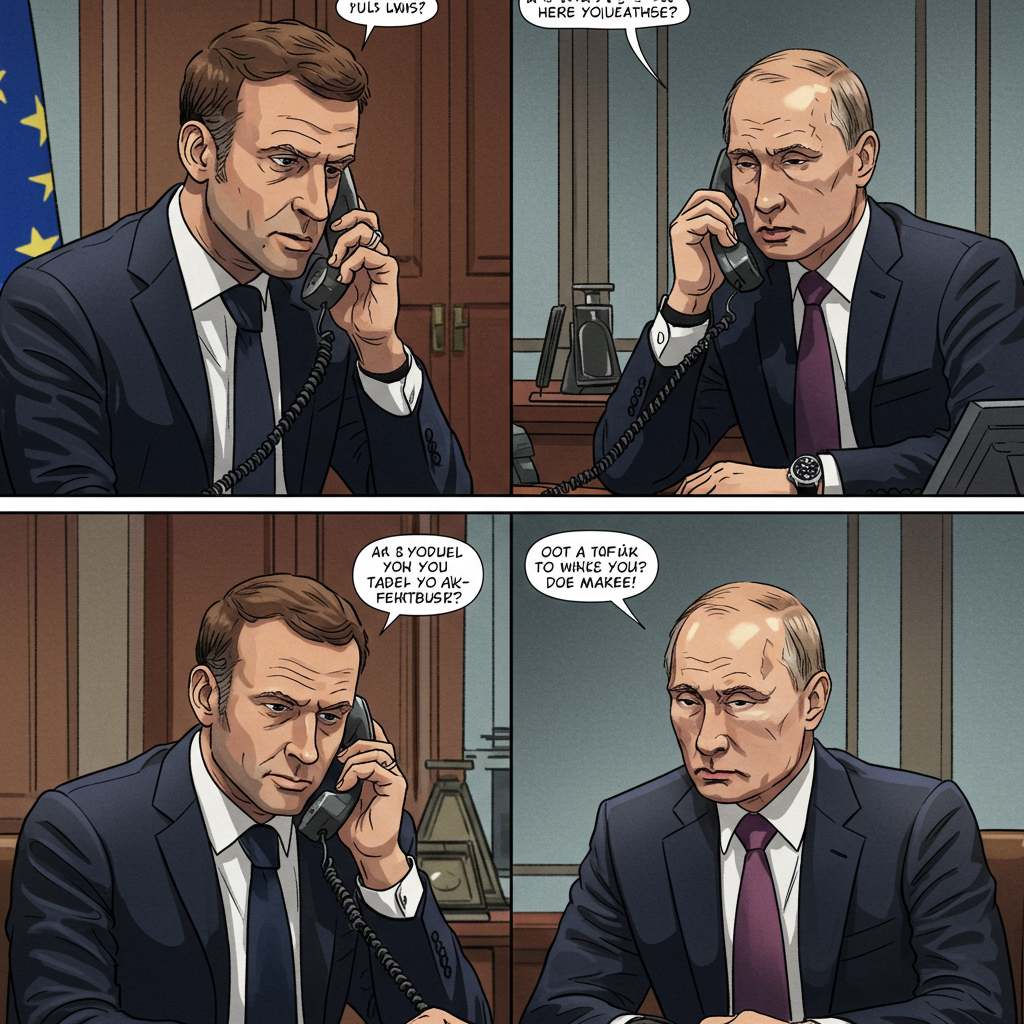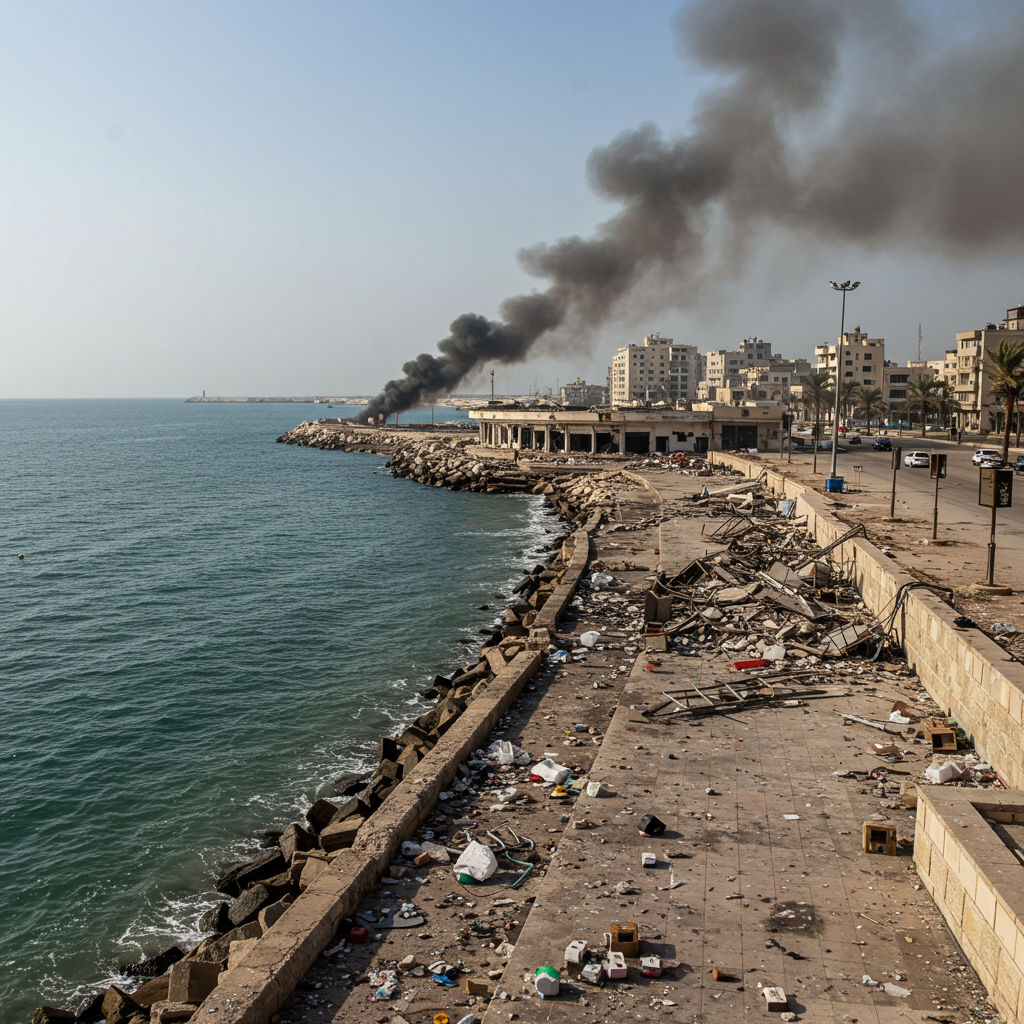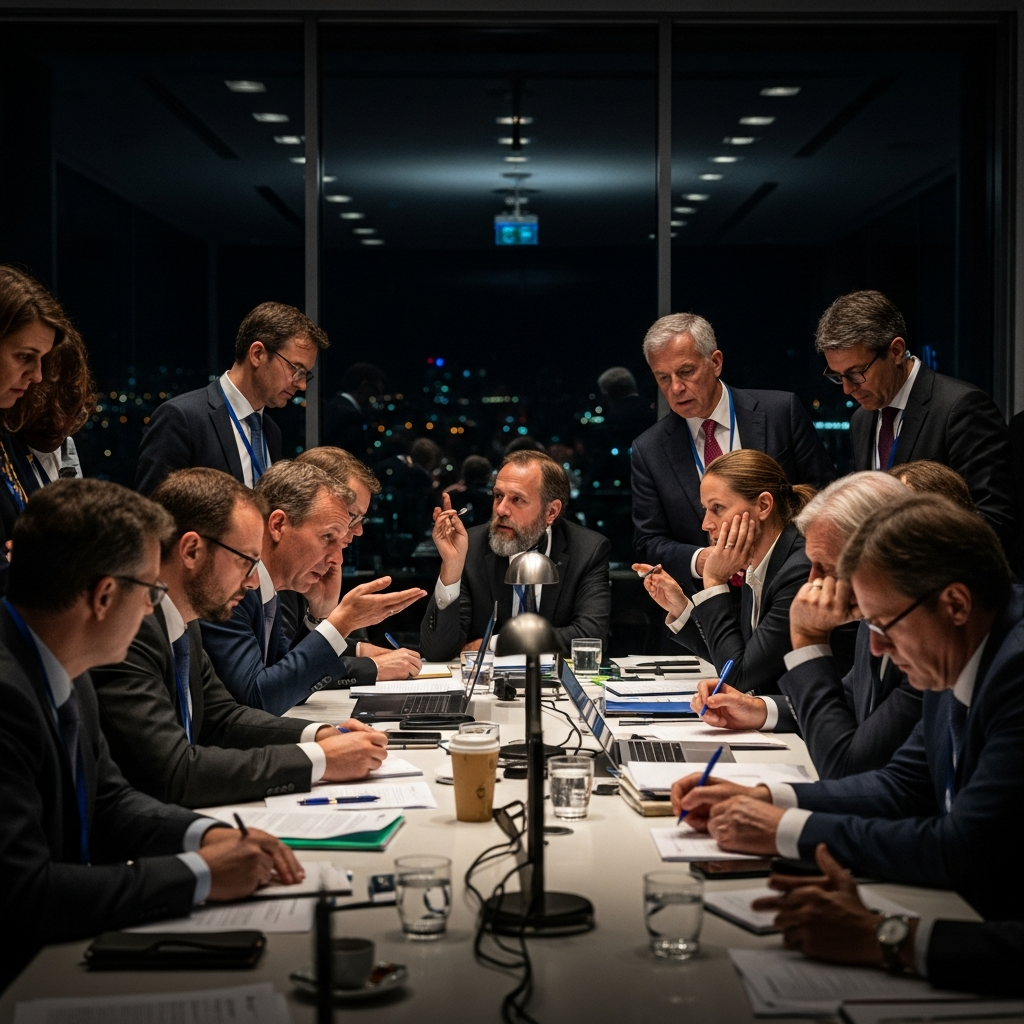In a significant diplomatic development, French president Emmanuel macron and Russian President Vladimir putin held their first direct phone conversation in nearly three years on July 1, 2025. The rare two-hour call marked the first time the Russian leader had spoken with a major European Union head of state since late last year, underscoring the complex and shifting landscape of global politics. While the discussion revealed stark disagreements on the ongoing conflict in Ukraine, the two leaders, permanent members of the UN Security Council, found some common ground regarding the sensitive issue of Iran’s nuclear program following recent international tensions.
High-Stakes Diplomacy Amidst Geopolitical Friction
The unexpected call occurred against a backdrop of heightened international instability. Notably, it followed recent alleged U.S. strikes targeting Iranian nuclear sites. For President Macron, initiating contact with Putin appeared to be a calculated move aimed at reasserting France’s role and international relevance, particularly concerning Middle East security. From Moscow’s perspective, the call offered President Putin an opportunity to project Russia’s continued stature as a significant global player despite widespread Western condemnation and attempts to isolate his regime following the 2022 invasion of Ukraine. Engaging directly with a key European leader like Macron served to subtly challenge that isolation.
The conversation itself represented a diplomatic risk for France, potentially seen by some Western allies as undermining the collective strategy of isolating Moscow. However, Macron’s history of engaging with Putin, including a visit to Moscow shortly before the 2022 invasion in an attempt to avert the conflict, suggests a persistent belief in the potential, however limited, for direct diplomatic channels.
Navigating the Iran Nuclear Impasse
The situation involving Iran’s nuclear activities and recent regional tensions featured prominently in the discussion. Both presidents reportedly expressed concern over “preserving the global nuclear nonproliferation regime.” This shared sentiment is particularly salient given the context of recent U.S. actions and reports of Iran’s parliament approving measures that could impact cooperation with international bodies like the International Atomic Energy Agency (IAEA).
According to readouts from the call, differing perspectives emerged alongside shared concerns. President Putin reiterated Russia’s position that Iran holds the right to develop peaceful nuclear energy, provided it adheres to its obligations under the Non-Proliferation Treaty (NPT). In contrast, President Macron emphasized the critical need for Iran’s full cooperation with the IAEA. Paris views the potential threat posed by Iran’s nuclear ambitions as serious enough to warrant coordinated action and discussion among all five permanent members of the UN Security Council, highlighting the need for a comprehensive diplomatic solution addressing not only nuclear issues but also Iran’s missile program and regional influence. Despite these nuances, the leaders reportedly agreed on the importance of pursuing diplomatic avenues and committed to coordinating efforts on this issue.
Deep Divisions Over Ukraine
While a degree of alignment was found on Iran, the chasm between Paris and Moscow regarding the war in Ukraine remained wide. The call served as a platform for both leaders to restate their entrenched positions, underscoring the difficulty of finding a path to peace.
President Putin presented his long-standing narrative, asserting that the conflict was a “direct consequence of the policy of Western states.” He claimed that Western actions, including NATO expansion and military support for Kyiv, had ignored Russia’s security concerns and transformed Ukraine into “an anti-Russian bridgehead.” Putin insisted that any potential peace agreement must be “comprehensive and long-term,” grounded in the “root causes” of the crisis, and crucially, acknowledge the “new territorial realities” – a clear reference to Moscow’s claims on occupied Ukrainian territories.
President Macron used the opportunity to press the Russian leader on the war. According to the French account, Macron urged Putin to agree to an immediate ceasefire and called for negotiations towards a “solid and lasting” resolution. France reiterated its “unwavering support for Ukraine’s sovereignty and territorial integrity,” maintaining that Ukraine alone should determine whether to make territorial concessions. The contrasting demands – Russia insisting on recognizing its annexations and France supporting Ukraine’s territorial integrity – highlight the fundamental obstacle to ending the conflict through negotiation.
Broader Geopolitical Context and Future Engagements
The call between Macron and Putin did not occur in a vacuum. It is part of a complex web of international efforts and shifting alliances aimed at managing global crises. President Macron has recently been active on the diplomatic front, including a recent visit to Washington D.C. to engage with U.S. President Donald Trump regarding Ukraine. European leaders have expressed growing concern over Trump’s stance, including his criticism of Ukrainian President Volodymyr Zelensky and potential shifts in U.S. support and engagement.
Trump’s administration has indicated a desire to pivot towards more direct negotiations with Russia and has tied continued U.S. aid to Ukraine to potential economic benefits, such as access to Ukraine’s valuable rare earth minerals. While this approach has caused friction with traditional allies, Macron has strategically navigated it, viewing such proposals as potential levers to keep the U.S. invested in Ukraine’s future, albeit through unconventional means. Macron reportedly briefed both President Zelensky and President Trump on his conversation with Putin, illustrating the interconnectedness of these diplomatic tracks.
Despite the significant differences, particularly on Ukraine, both presidents reportedly agreed to maintain communication channels. This decision reflects a mutual, albeit minimal, recognition of the importance of direct high-level contact between permanent UN Security Council members in a volatile global environment. The future of Russia-France relations and the potential for meaningful dialogue on key security issues remain uncertain, but this rare call signals a potential, albeit fragile, reopening of direct diplomatic lines that had largely been frozen since 2022.
Frequently Asked Questions
What was the main outcome of the recent call between Macron and Putin?
The call, held on July 1, 2025, was the first between the two leaders in nearly three years. While they remained sharply divided on the war in Ukraine, they found some shared ground regarding the importance of diplomacy and upholding the non-proliferation regime concerning Iran’s nuclear activities, especially following recent tensions.
Why did President Macron initiate contact with President Putin at this time?
Initiating the call appeared to be a strategic move by President Macron to enhance France’s diplomatic relevance, particularly in addressing the volatile situation in the Middle East after recent U.S. actions concerning Iran. It also represented an effort to maintain a channel of communication with Russia, despite the ongoing isolation efforts by Western nations following the Ukraine invasion.
How do the French and Russian positions on the war in Ukraine differ according to the call readouts?
President Putin reiterated that the war was a consequence of Western policies and insisted any peace deal must acknowledge “new territorial realities” (Russia’s annexations). President Macron countered by calling for an immediate ceasefire and negotiations based on “unwavering support for Ukraine’s sovereignty and territorial integrity,” maintaining that Ukraine must decide its own future regarding territory.



